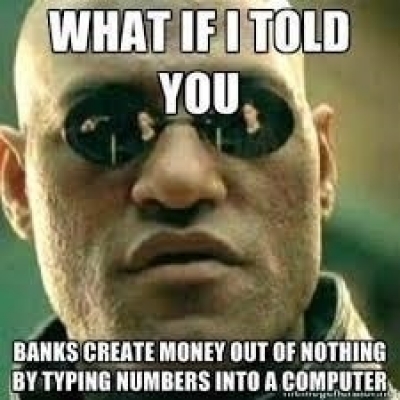Just last year, the Bank of England openly admitted that the private banks are responsible for creating the bulk of the money supply out of nothing. This is significant, because although the truth about the bank creation of money has been floating around in the public forum for at least the last one hundred years (largely due to the efforts of C.H. Douglas and others), some bankers and economists have denied this reality (while others, like Reginald McKenna, have been quite open about it) [1]. Even today, there are many people, including many politicians, who are blissfully unaware and/or seriously misinformed regarding the origin of our money supply.





